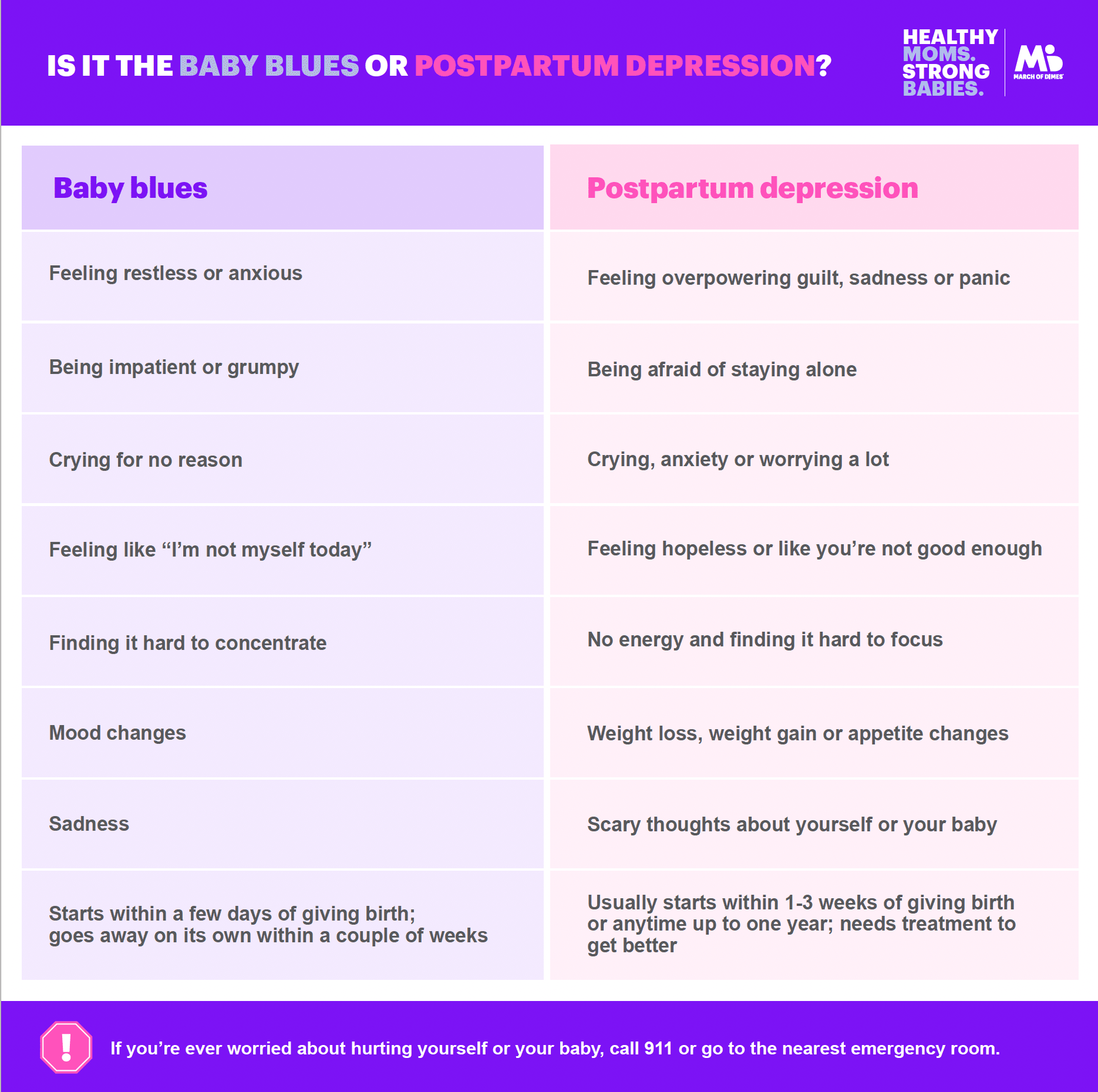
Baby Blues: A Common Postpartum Experience
The arrival of a new baby is a joyous occasion, but it can also be a time of emotional upheaval for new parents. The hormonal changes, sleep deprivation, and overwhelming responsibility of caring for a newborn can take a toll on mental health. One common postpartum experience is baby blues, a temporary period of sadness, anxiety, and irritability that affects up to 80% of new mothers.
Symptoms of Baby Blues
Baby blues typically begin within the first few days after childbirth and usually resolve within a few weeks. Symptoms can include:
- Mood swings
- Tearfulness
- Anxiety
- Irritability
- Difficulty concentrating
- Fatigue
- Changes in appetite
- Sleep disturbances
Causes of Baby Blues
The exact cause of baby blues is unknown, but it is thought to be related to the hormonal changes that occur after childbirth. Estrogen and progesterone levels, which are high during pregnancy, drop rapidly after delivery. This sudden hormonal shift can affect mood and behavior.
Other factors that may contribute to baby blues include:
- Sleep deprivation
- Physical discomfort
- Stress of caring for a newborn
- Lack of support
Treatment for Baby Blues
Baby blues usually resolve on their own within a few weeks. However, there are some things that new mothers can do to help manage their symptoms:
- Get enough sleep. This may be difficult with a newborn, but try to nap when the baby naps and ask for help from family or friends with night feedings.
- Eat healthy foods. A healthy diet can help improve mood and energy levels.
- Exercise regularly. Exercise releases endorphins, which have mood-boosting effects.
- Talk to someone. Talk to your partner, a friend, or a therapist about your feelings.
- Join a support group. Connecting with other new mothers can provide support and reassurance.
When to Seek Help
If your symptoms of baby blues are severe or do not improve within a few weeks, it is important to seek professional help. You may have postpartum depression, which is a more serious condition that requires treatment.
Symptoms of postpartum depression include:
- Persistent sadness or hopelessness
- Loss of interest in activities
- Changes in appetite or sleep
- Difficulty bonding with the baby
- Thoughts of harming yourself or the baby
Preventing Baby Blues
There is no sure way to prevent baby blues, but there are some things that new mothers can do to reduce their risk:
- Get plenty of support. Having a strong support system of family and friends can help you cope with the challenges of caring for a newborn.
- Take care of yourself. Make sure to get enough sleep, eat healthy foods, and exercise regularly.
- Be realistic about your expectations. Don’t expect to be a perfect parent overnight. It takes time to adjust to the demands of caring for a newborn.
Conclusion
Baby blues are a common postpartum experience that can affect up to 80% of new mothers. Symptoms typically begin within the first few days after childbirth and usually resolve within a few weeks. While baby blues are usually not a cause for concern, it is important to seek professional help if your symptoms are severe or do not improve within a few weeks.
